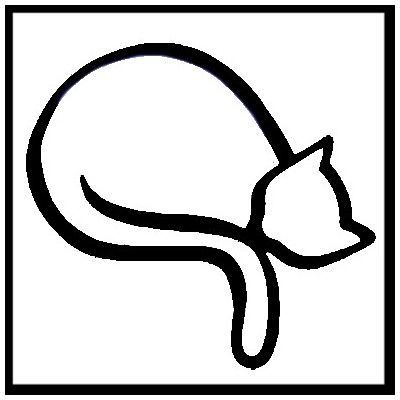|
A kitten is born with a normal, oval chest. After a few days or weeks the shape of the chest itself will change. It becomes wider, flatter and could even dent. The official term is "Pectus Excavatum" or flat chest. The disorder occurs in various degrees. Sometimes it is so mild that it is not noticed. In other cases it is so serious that the survival of a kitten is almost nil. This condition is known to many cat breeds, but also to breed less cats and dogs. Although there is no evidence that this disorder is hereditary, it appears more in some family lines than in others. In breeds with a limited gene pool it seems to be more common. Nevertheless one seems convinced that a genetic component is present.
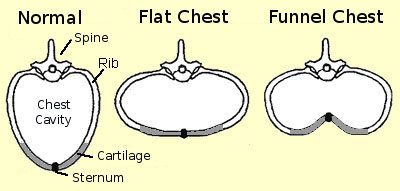 One thinks that besides the hereditary factor, one is able to identify other causes. A calcium deficiency in the pregnant cat may be a factor. A lesser quality or even too little breast milk. Another cause might be that the chest muscles don't grow fast enough, causing the cartilage to deform. Furthermore a surface that is too hard or too smooth for the kittens can be a cause. Or a bacteria or virus. Because of the abnormal deformation of the chest, the development of heart and lungs is significantly hampered. The affected kitten can not breathe in and out very well. It gets too little oxygen so it breaths faster or even gasps for breath and thus gets exhausted. Suckling is also a problem and the animal stays behind in growth. There is, besides examining the chest, also an urgent need for supplementary feeding. 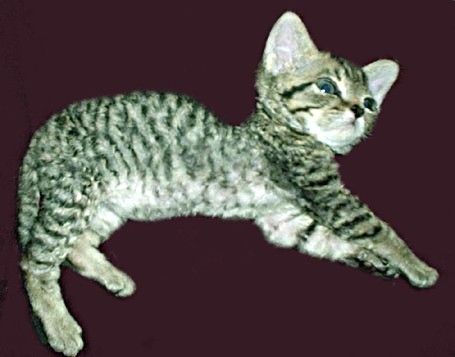 As mentioned, the disease occurs in various degrees. In very mild cases, nothing is done and the kitten grows over it in time. In very severe cases putting the animal to sleep is a tough but friendlier option. This will always happen in consultation with your veterinarian. For all cases in between, it is possible to both help the kittens chances of survival as well as enlarging the quality of life. Because the kitten lies on his chest, it becomes even harder to breathe in and out. It will therefore become an armour. One must pay close attention to the sternum that still sticks out, so it isn't pushed further inside. 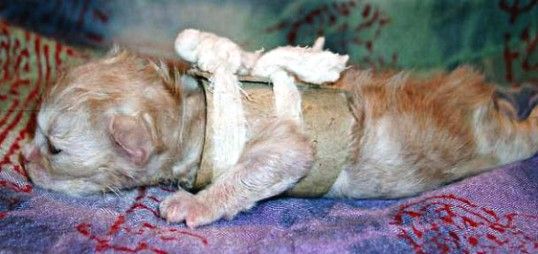 The little armour should fit well and not pinch. It helps the kitten to alleviate the pressure on the chest by pushing the sides inside. This makes breathing easier. Also, the kitten is more or less forced to sleep on his side. Furthermore, the kitten can be more compelled to use its feet (by placing it a little distance from the mother, letting it step while it is supported) to develop and strengthen the muscles. The frequent massaging of the legs and chest is recommended to loosen the muscles and keeping them flexible. Besides all this, the kitten is fed supplementary, if needs be by tube feeding. They use much more energy than unaffected kittens and need the extra energy so hard just to keep up, let alone grow. However, not all kittens will bear the armour and some will get severely upset. In such a case the armour is counterproductive, because the kitten gets upset and tired from the resistance. And that has its effect on the energy consumption, feeding and growing. If the kittens survive for 3 weeks, it is very likely that the chest (in mild cases) gets back to its normal shape or (in severe cases) will remain flat without side effects. Unfortunately there is no guarantee and in severe cases the kitten can still die within 12 to 18 weeks. A kitten that survives FCK syndrome can lead a normal live, provided that the heart and lungs are not damaged. If the kitten can run and play without running out of breath or be fatigued, it is probably all right. Your veterinarian can examine the kitten more accurately if desired. 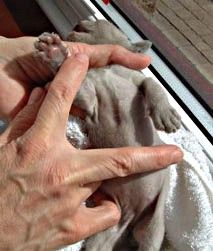
The THINK Project was established to raise funds and collect data so that academic research could be launched for chest abnormalities in kittens and in particular the FCK syndrome. Their objectives are: * Identifying the specific chest abnormalities * Informing veterinarians, breeders and other interested people about the defects and possible treatments * Financing of the multi-disciplinary approach to investigate problems * Identifying causes with the aim to prevent and treat This organization was founded in 2005 in Great Britain and can be supported by anyone by becoming a member or by making a donation. You can also help by filling in a questionnaire. They need information on litters in which FCK syndrome occurs, but also about litters that remain free of it. So they want to collect a large amount of data for research and monitoring. All submitted information is confidential, you don't even have to give your name if you don't want to. Further information and the possibility to donate money can be found on the Think website:www.questor-cp.co.uk/think/ |
Nederlandse Burmezen Club 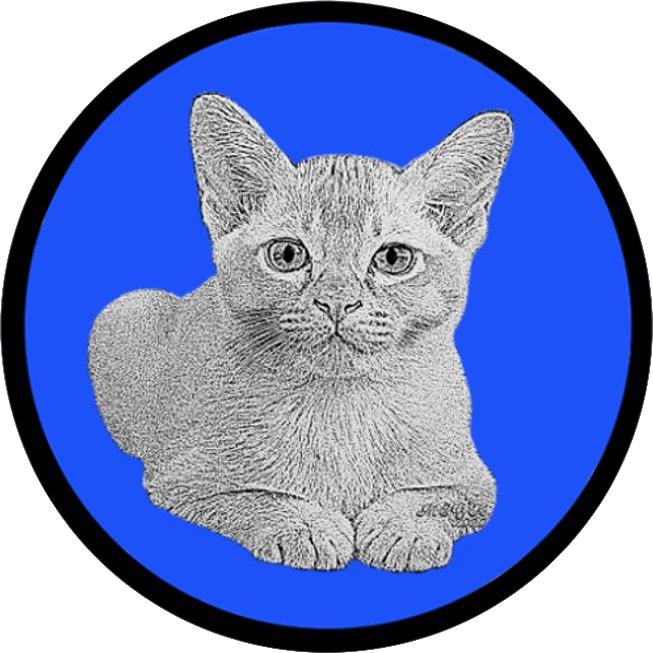 Member of Ocicat Club Holland 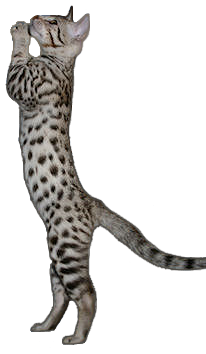 |
© 2006-2024 Cattery Nimble Nymph - Alle rechten voorbehouden




